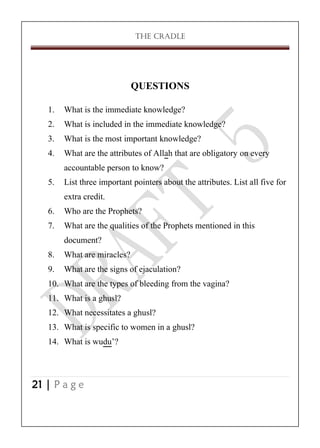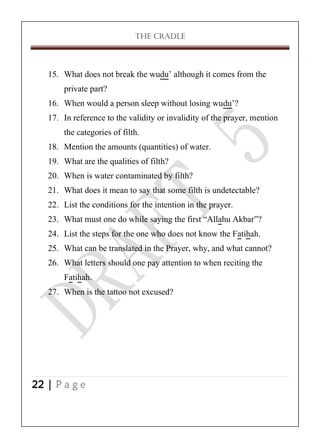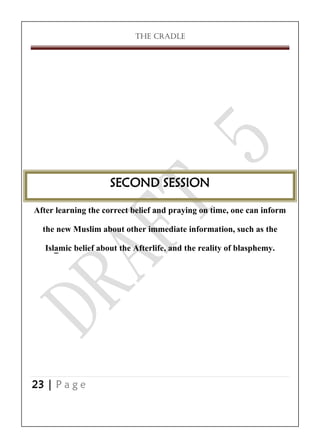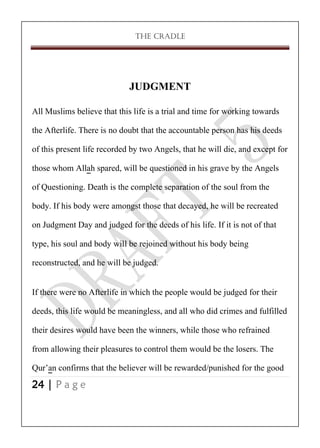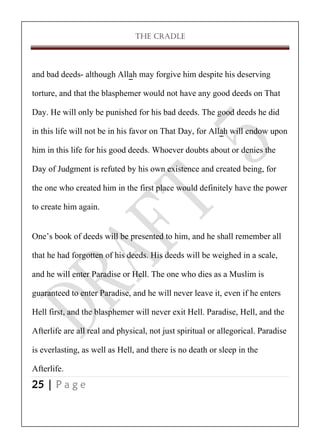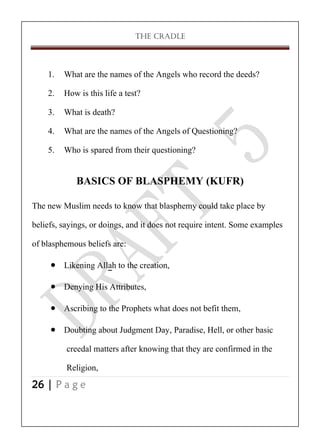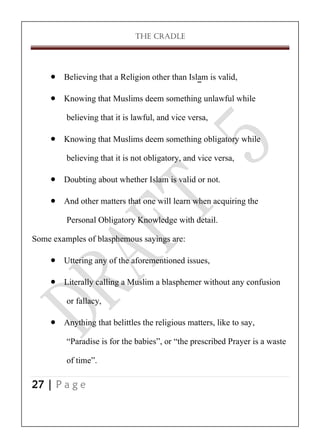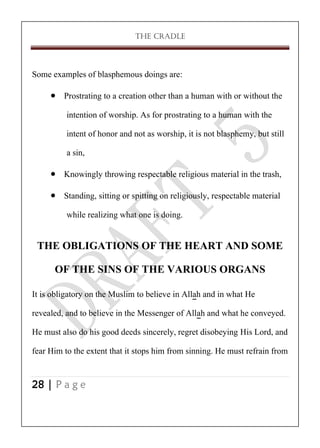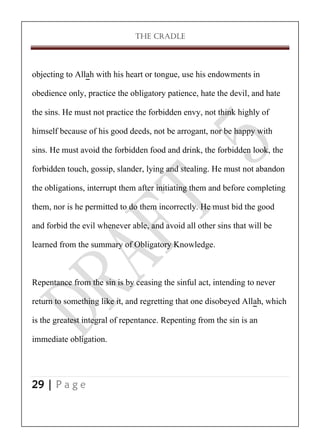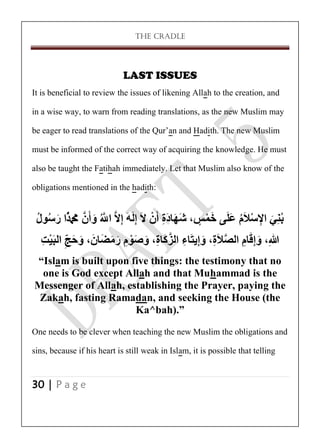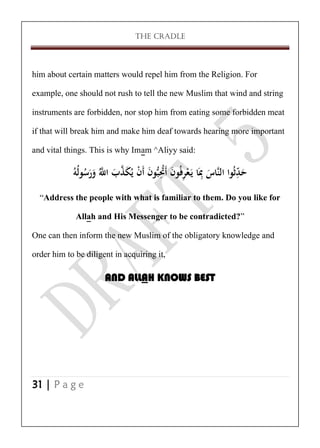This document provides guidance for new Muslims on basic Islamic beliefs and practices. It covers the 13 essential attributes of Allah, the prophets, purification rituals like ghusl and wudu, basic prayer requirements, and important cases regarding prayer. The document aims to equip new Muslims with the immediate religious knowledge needed to properly worship Allah, such as knowing about Allah, performing purification, and praying on time. It emphasizes conveying the essential information as concisely as possible.
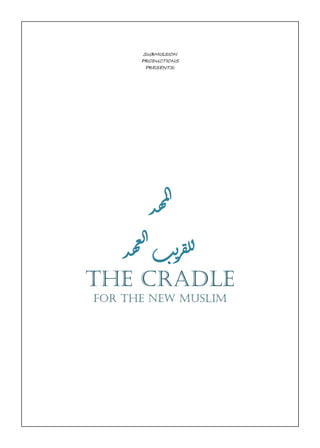
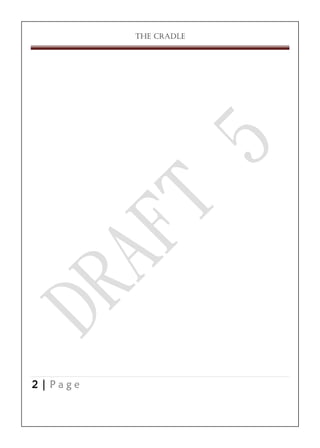
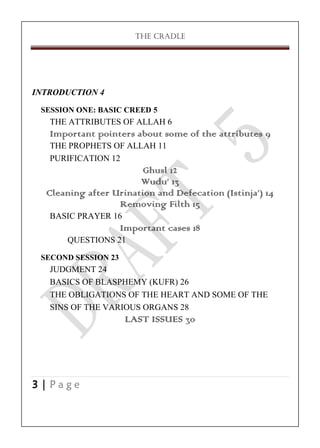
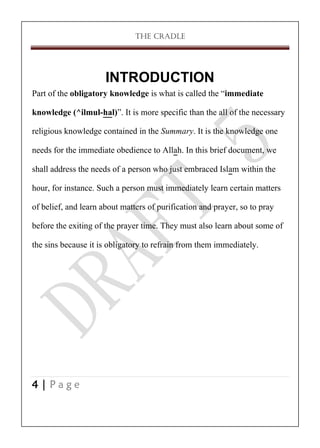
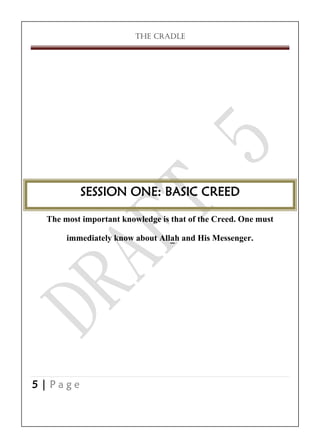
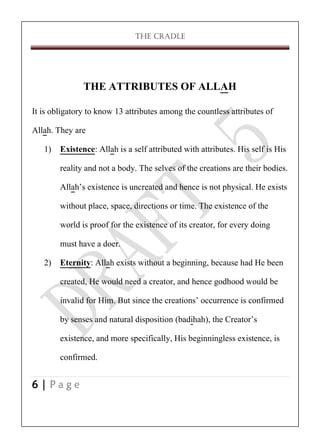
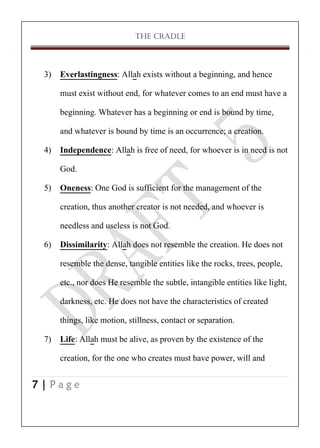
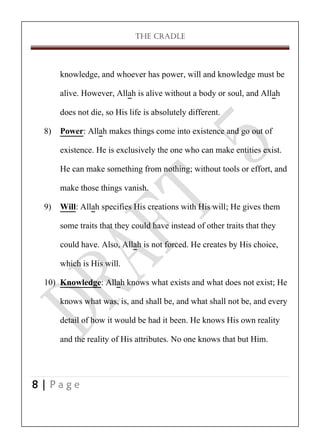
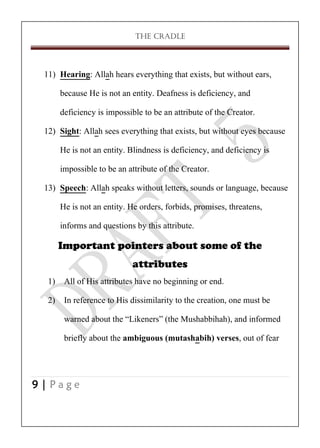
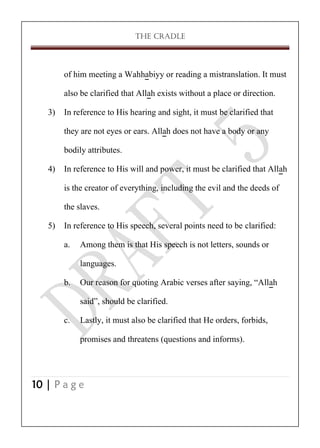
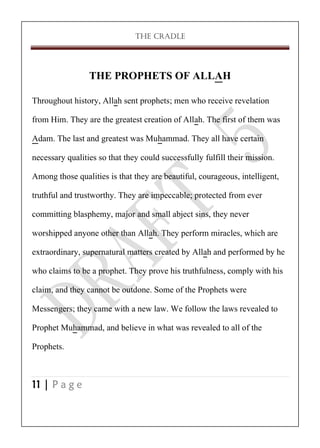
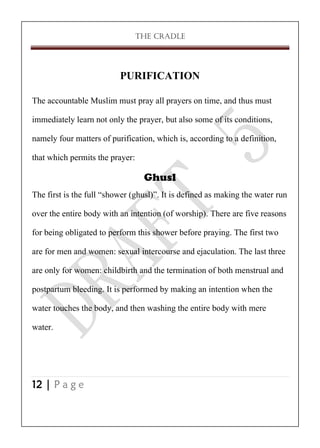
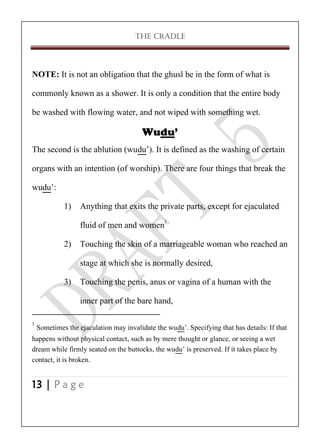
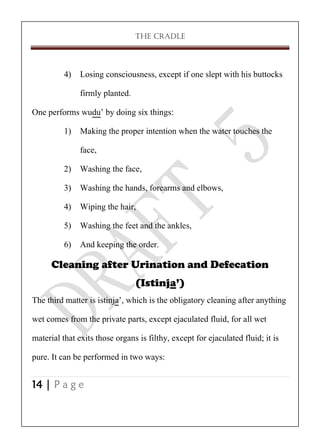
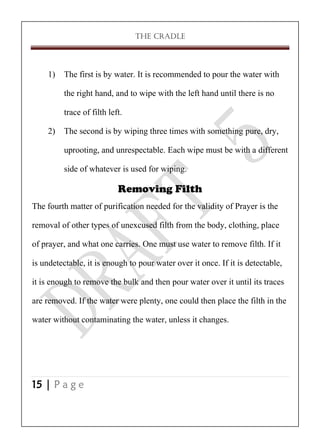
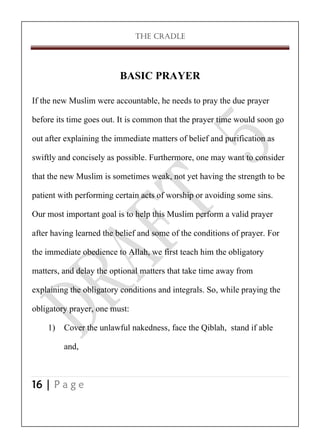
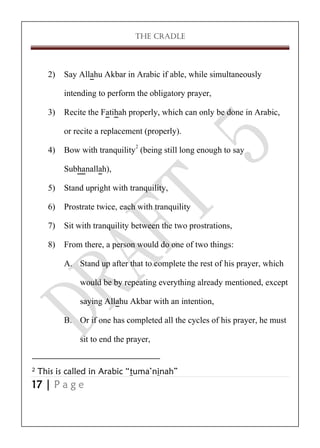
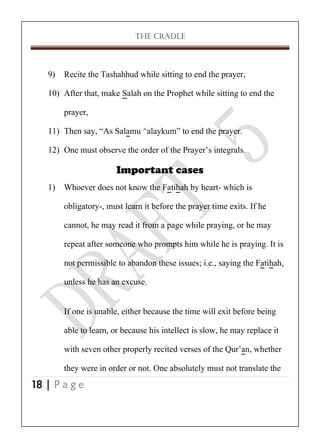
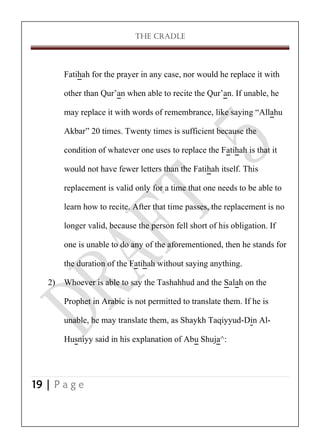
![THE CRADLE
ِ
ِ
من عرف التَّش ُّد والصَلة على النَِّب صلى هللا علَيه وسلم بِالْعربِيَّة َل جيوز لَهُ أَن
َ ِ ََ
َ َّ َ َ ه
َ َْ
يعدل إَِل ترمجتها كتكبرية اْلحرام فَِإن عجز ترمجها
َ
َ ْ ِْ
‚It is not permitted for whoever knows the Tashahhud and the Salah on
the Prophet in Arabic to resort to their translations, like the formula
‘Allahu Akbar’ that initiates the prayer. If unable, he translates them.‛
3) It is important to help the New Muslim recite the letters
properly. If he is an English speaker, pay special attention to his
pronunciation of the ([ حha’]), the (^[عayn]), the ([ سsin]), the
([ضdad]), the ([ غghayn]), and especially the ([ صsad]). There
is another recitation of the Fatihah in which the ([ صsad]) is
replaced by the ([ سsin]). That recitation may be easier for him.
20 | P a g e](https://image.slidesharecdn.com/forthenewmuslim-130713224900-phpapp01-131226200309-phpapp01/85/What-Every-New-Returning-Muslim-MUST-Know-20-320.jpg)
